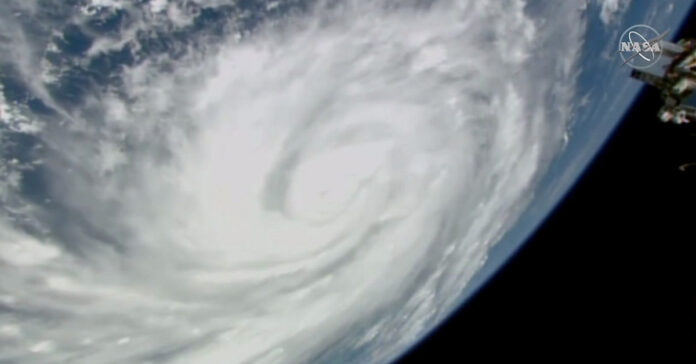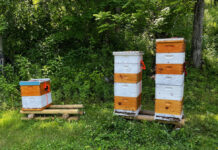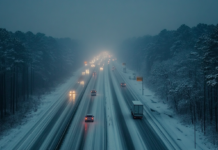Editor’s note: Because of the immediacy of Hurricane Ian, we are posting Wednesday’s post on Tuesday afternoon, nine hours earlier than usual. Assuming we have power, we’ll return to our daily posting on Thursday. Until then, stay safe and keep prepping.
As I write this on Tuesday afternoon, Hurricane Ian is bearing down on Florida but has not yet hit. It struck Cuba and the storm’s size and ferocity continues to grow as it heads towards landfall at somewhere close to Tampa Bay. They expect the entire west coast of Florida up into the panhandle to see some impact from this powerful storm, which is already drenching the Keys and southern portions of the state with heavy rain.
The Tampa area is ill prepared for a hurricane. It has many low-lying areas, communities where houses are a few feet above the water. People who get water in their garage during high tides are wondering what will happen when hit by a storm surge that could be up to 14 feet above normal.
I can predict what will happen: houses will flood and take months or years to repair; some will be swept off their foundations; roofs will rip off in high winds; businesses will be destroyed; families will lose everything; some people will be rescued from their roofs while others will die; and many people will find out after the fact that their homeowner’s insurance doesn’t cover them for flood and high winds.
So here’s lesson one: Don’t live in low-lying areas subject to flooding. If you insist on owning a beachfront house, or even a house on an inland waterway, make it a vacation home rather than your primary home. If you want the fun, the sun, the boating, swimming and fishing, that’s fine, but don’t leave anything in the house you are not prepared to write off.
Empty Shelves
Over the weekend, the early birds, the smart shoppers, started buying up the bottled water, canned food, and plywood. By Monday, it was too late. There were lines and empty shelves. People who wanted bottled water were lucky if they could find sparkling water or flavored water, there was none of the standard bottled water left.
This leads us to lesson two: Do not be expect to get prepared at the last minute. Prepare well ahead of time. Hurricane Season starts on June 1. Ideally, people living in a hurricane-prone area would buy and store water and other supplies before hurricane season. I also don’t understand why people are rushing off to buy plywood. If you live on the coast of Florida, there is no excuse not to have hurricane shutters and a generator.
Floridians are lucky they get warned before hurricanes hit. This hurricane is not catching them by surprise. But there are many disasters that we don’t see on radar and catch us by surprise. No thinking man or woman should be unprepared.
Evacuations
As of Tuesday afternoon, at least 2.5 million people are under evacuation orders. That’s a huge jump from the 300,000 who were under evacuation orders the day prior.
My guess is that most people will leave after work and school, creating a huge traffic jam on the outbound roads this evening. Gas stations along the evacuation route will run out of gas. Hotels in areas safe from the storm will run out of rooms. Let’s not forget about those poor electric vehicle owners who have to find an available charging station and potentially wait hours as their car charges.
Lesson Three: Don’t wait for the official evacuation notice to bug out. The earlier in the evacuation process you can leave, the smoother and less stressful the trip will be. The more prepared you are with a bug out bag and a set of plans, the faster you can get out of Dodge. Don’t worry about pulling your kids out of school the day before everyone else. The school system sent them home for a year because of COVID; they can deal with a day.

Lesson Four: Have somewhere to go. You don’t want to be driving through unknown country hoping to find a no-tell motel with a vacancy sign. Either book your hotel as soon as the possibility of a hurricane hits the news or have plans with friends to be each other’s bug out location. If something goes wrong where they live, they can head to your house and vice versa.
Alternatively, if you have an RV, your evacuation can become an unplanned vacation. Towing a trailer may hurt your gas mileage, but have more flexibility when you are pulling your bedroom, closet and kitchen behind you. It’s also easier to bring along a dog, cat or other pet if you have an RV.
Bad Weather Beyond the Shoreline
While meteorologists standing in blowing winds as the storm rushes ashore will dominate TV screens, some of the worst damage could come from floods inland or even a couple of states away. The rotation of the storm often picks up moisture from the ocean, draws it inland, and dumps it far from the eye wall. This can lead to flooding downstream a day or two after the storm passes.
We are prepared for excess rain, just in cases it reaches us. Our vehicles and spare gas cans are filled. I’ve been charging 18650 batteries, lanterns and flashlights. I will bring more firewood in on Wednesday to keep it dry, just in case. (Our night time temps have dropped into the low 40s. The house is 67°F today, ten degrees colder than a month ago. The master bathroom, which seems to be the coldest room in the house, was 62° this morning. My wife says we’ll know winter is here when it reaches 54°. I expect we’ll start using the wood stove before then.)
Wherever you live, use this as an excuse to check your preps. Make sure your spare batteries have a full charge, your gas cans are full, and you haven’t forgotten to replace something you took from your bugout bag. Do you have stored water, just in case? Do you need to rotate it or any food? What about your bug out location? Will they still welcome you if you show up on their doorstep? Don’t wait until the tornado, earthquake, blizzard or other local equivalent of a hurricane hits you without warning. Prep now.







